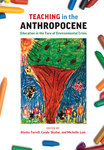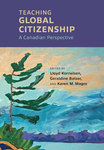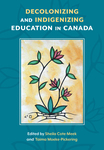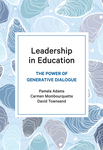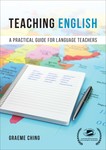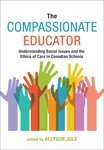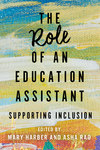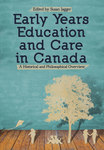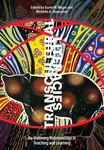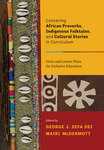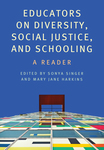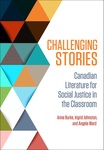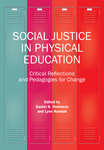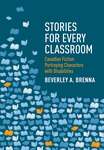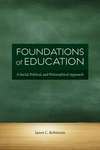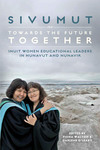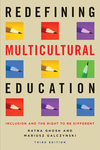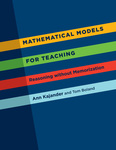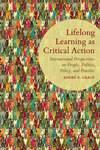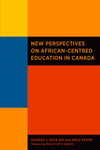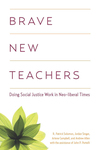We don’t actively support Internet Explorer
It appears that you are using Internet Explorer, which has been discontinued by Microsoft. Support has ended for versions older than 11, and as a result you may face security issues and other problems when using it.
We recommend upgrading to a newer browser such as Firefox, Google Chrome, or Edge for a much better experience across the web.
While this site may work with Explorer, we are not testing and verifying it, so you may run into some trouble or strange looking things.
Canadian Curriculum Studies
A Métissage of Inspiration/Imagination/Interconnection
Edited by Erika Hasebe-Ludt, Carl Leggo
Overview
This timely edited collection asks bold and urgent questions about the complexity, culture, and character of curriculum studies in Canada. Featuring 30 original chapters and 21 short invocations, this volume includes works by both established and new scholars, illustrating the wide range of cutting-edge writing in this area.
Weaving together personal essays, poetry, life writing, and other arts-based inquiry modes, Canadian Curriculum Studies highlights the creative, performative, interactive, and imaginative nature of this field. The contributors were asked to provoke conceptions and understandings of curriculum studies by examining their convictions, commitments, and challenges with/in this discipline. By bringing together diverse Indigenous and non-Indigenous scholarship, the editors invoke the concept of métissage, which is finding a growing resonance both in Canada and abroad. This rich text is well-suited to senior undergraduate and graduate courses in curriculum studies and qualitative educational research.
Features
- offers the most current and expanded view of this complex field
- includes short, compelling readings from both established and new scholars
- represents Indigenous scholarship in a number of the readings
- employs various genres: personal essay, expository essay, memoir, and poetry
Table of Contents
Acknowledgements xii
About the Cover Art xiii
Foreword: Revealing Interrelationality, Unearthing Histories, William F. Pinar xv
Foreword: Walking in a Good Way With All Our Relations, Vicki Kelly xvi
Editors’ Ruminations: Opening to a Métissage of Curricular Provocations xviii
Landscape Invocations, Rita L. Irwin xxxi
![]()
MÉTISSAGE A: INSPIRATION: TOPOS/LANGUAGE/SOUND
![]()
A1. As Long as the Grass Grows: Walking, Writing, and Singing
Treaty Education, Sheena Koops 2
A2. The Practicality of Poetry: A Meditation in 10 Tankas, 3 Sonnets, 2 Free Verses, and a Jazz Coda, Anna Mendoza 11
Provoking Understanding through Community Mapping Curriculum Inquiry, Diane Conrad, Dwayne Donald, and Mandy Krahn 18
A3. Understanding Teacher Identity with(in) the Music Curriculum,
Katie Tremblay-Beaton 20Curriculum-as-Living-Experience, Rebecca Lloyd 26
A4. Listening to the Earth, Diana B. Ihnatovych 27
Rumination on Pedagogical Rhythm, Claudia Eppert 34
A5. Artful Portable Library Spaces: Increasing Community Agency and Shared Knowledge, Amélie Lemieux and Mitchell McLarnon 35
A6. The Spacing of the Hegemonic Chora in the Curriculum of First- Language Attrition, Wisam Kh. Abdul-Jabbar 47
Old Mournings, New Days, Robert C. Nellis 55
A7. Navigating a Curriculum of Travel through Geneva: Museums, Gardens, and Governance, Rita Forte 56
A8. A Quantumeracy Reading List, Kyle Stooshnov 66
Reading the Water for the Wind: On the Remnants of Curriculum, Lisa Farley and RM Kennedy
77A9. The Character of Contemporary Curriculum Studies in Canada: A Rumination on the Ecological and Metaphorical Nature of Language, Kelly Young 78
Siren’s Ghost Net, Pauline Sameshima and Sean Wiebe 85
![]()
MÉTISSAGE B: IMAGINATION: IDENTITY/ETHOS/SPIRIT
![]()
B1. Provoking the Intimate Dialogue: A Path of Love,
Samira Thomas 88
Three Invocations That Provoke: Strangler Figs, Madness, and Earthquakes, Peter P. Grimmett 96B2. Eros, Aesthetics, and Education: Intersections of Life and
Learning, Boyd White 98
B3. The Question Holds the Lantern,
Margaret Louise Dobson 108
Curriculum Grammar for the Anthropocene, Jackie Seidel 113
B4. Learning about Curriculum through My Self,
Shauna Rak 114
B5. A Response to Still Dancing: My Bubby’s Story,
Bruce G. Hill 123
Dear Canadian Curriculum Studies Colleagues, John J. Guiney Yallop 130
B6. Rumi and Rhizome: The Making of a Transformative Imaginal
Curriculum, Soudeh Oladi 131
To Enchanted Lands, David Lewkowich 140
B7. Theorizing as Poetic Dwelling: An Intellectual Link between Ted
Aoki and Martin Heidegger, Patricia Liu Baergen 141
Lane Muses, Kent den Heyer 151
B8. Transitional Spaces and Displaced Truths of the Early-Years
Teacher, Sandra Chang-Kredl 152
B9. Be/long/ing and Be/com/ing in the Hy-phens,
Veena Balsawer 159
Space for “Thinging” about Ineffable Things, Wanda Hurren 164
B10. Religion, Curriculum, and Ideology: A Duoethnographic
Dialogue, Saeed Nazari and Joel Heng Hartse 165
Living with Generosity: A Rumination, Anita Sinner 174
B11. Agency and the Social Contract: Algorithms as an Interpretive
Key to Modernity, Sean Wiebe 175
Nocturne, Curriculum, and Building a Bench, Hans Smits 183
![]()
MÉTISSAGE C: INTERCONNECTION: RELATIONS/HEALING/ PATHOS
![]()
C1. “What Happened Here?”: Composing a Place for Playfulness and Vulnerability in Research, Cindy Clarke and
Derek Hutchinson 186
Viscera, Celeste Snowber and Tamar Haytayan 199
C2. Conversations in a Curriculum of Tension, Stephanie J. Bartlett and Erin L. Quinn 200
C3. Dwelling in Poiesis, Shirley Turner 207
“To Know the World, We Have to Love It,” David W. Jardine 224
C4. Provoking “Difficult Knowledge”: A Pedagogical Memoir,
Mary J. Harrison 226
C5. Kizuna: Life as Art, Yoriko Gillard 233
Detention, Elizabeth Yeoman 249
C6. Haunted by Real Life: Art, Fashion, and the Hungering Body,
Alyson Hoy 250


